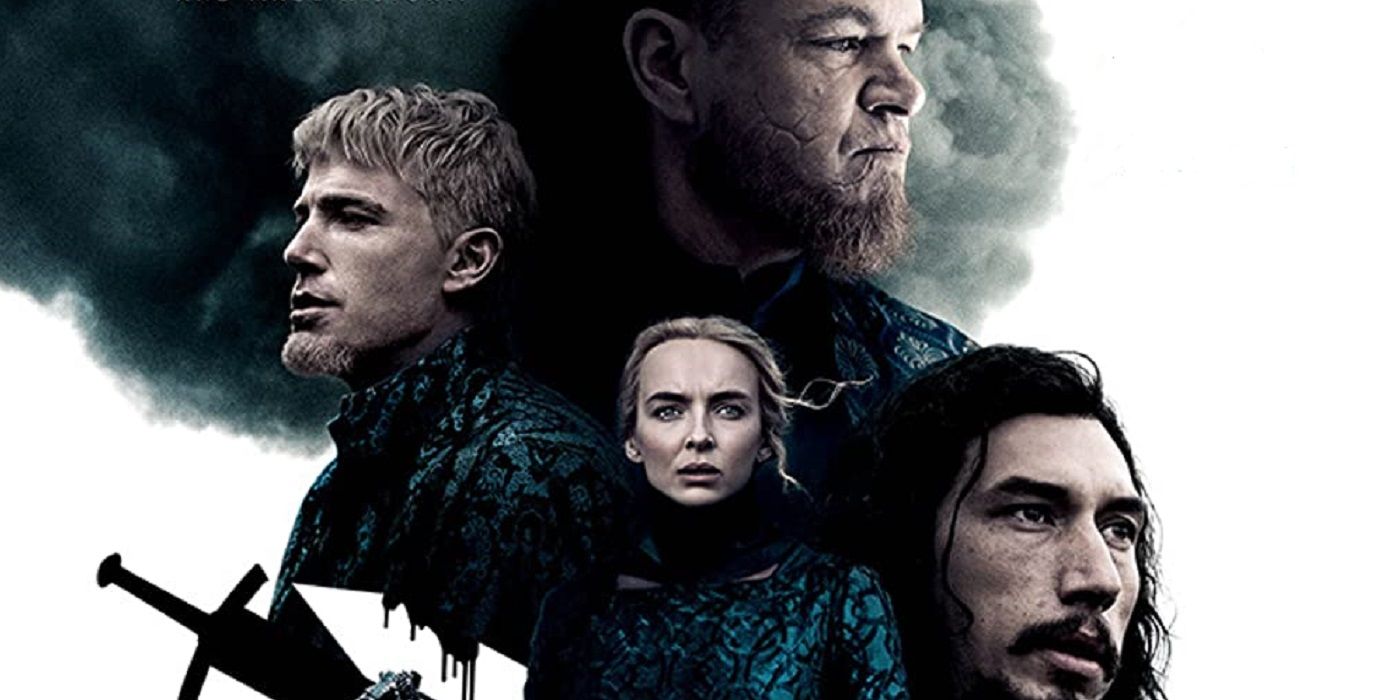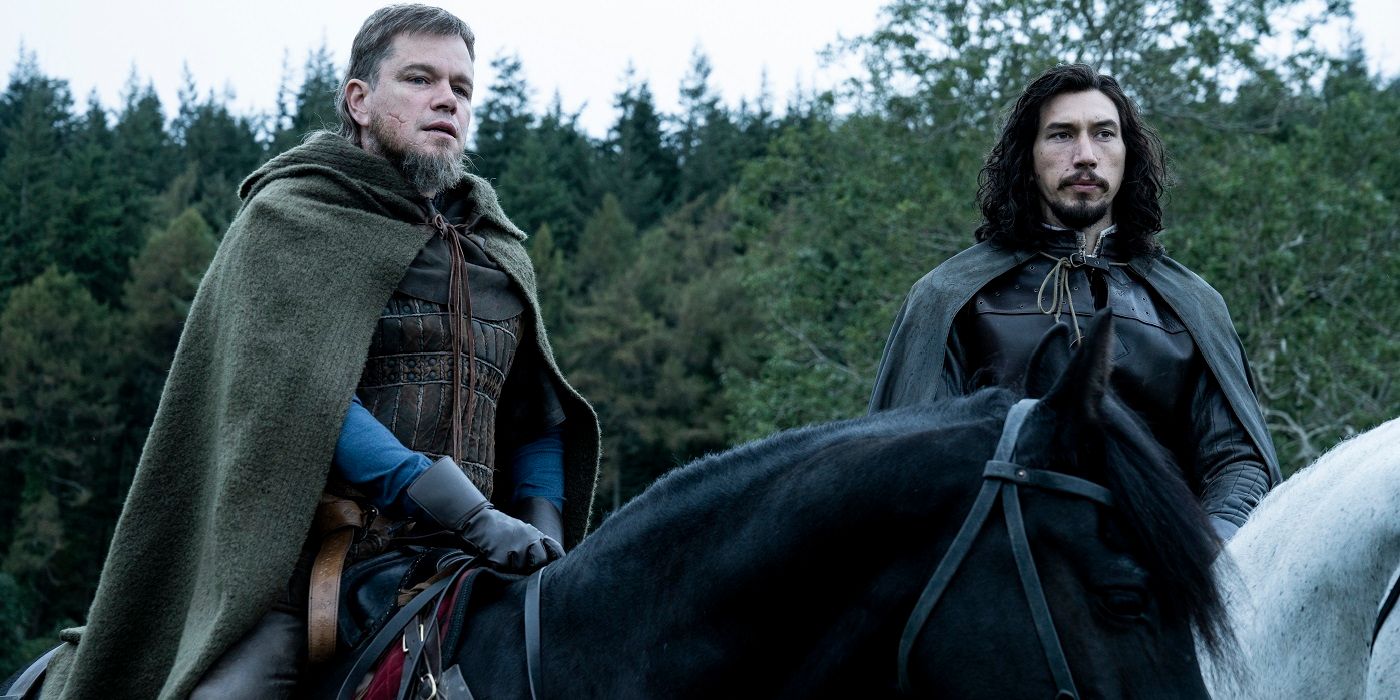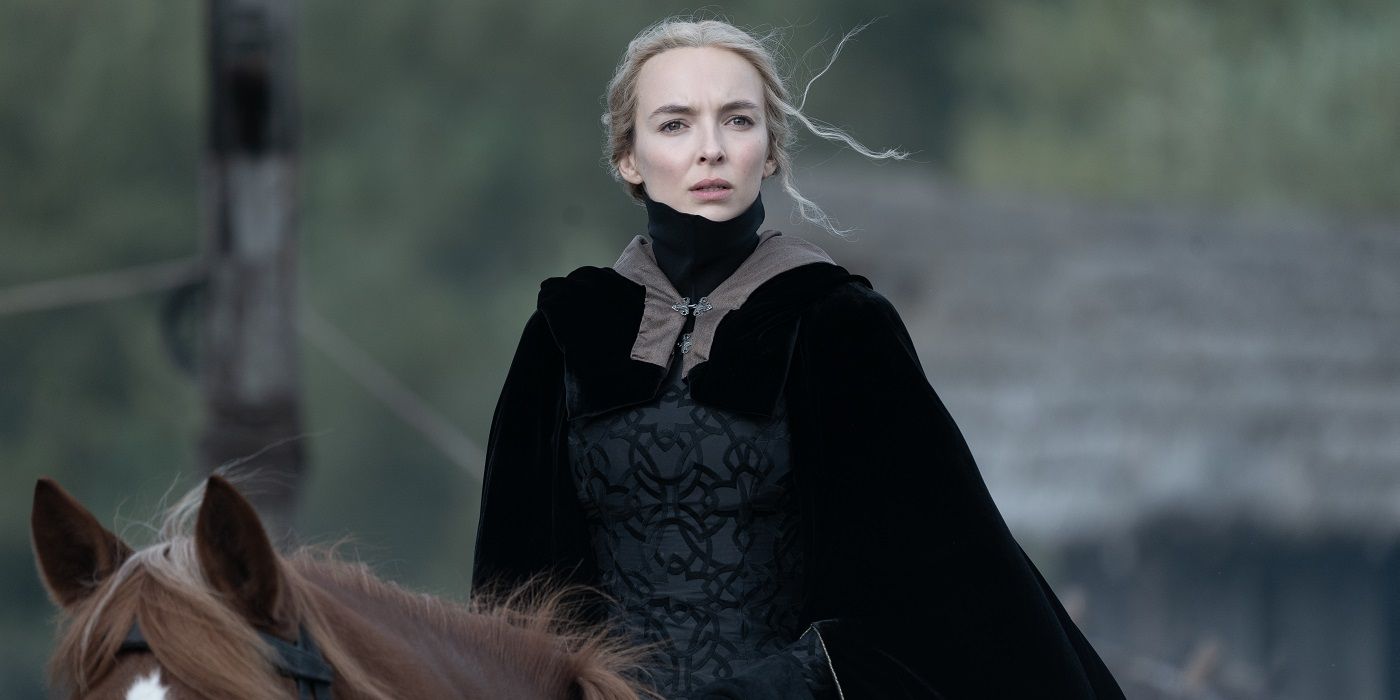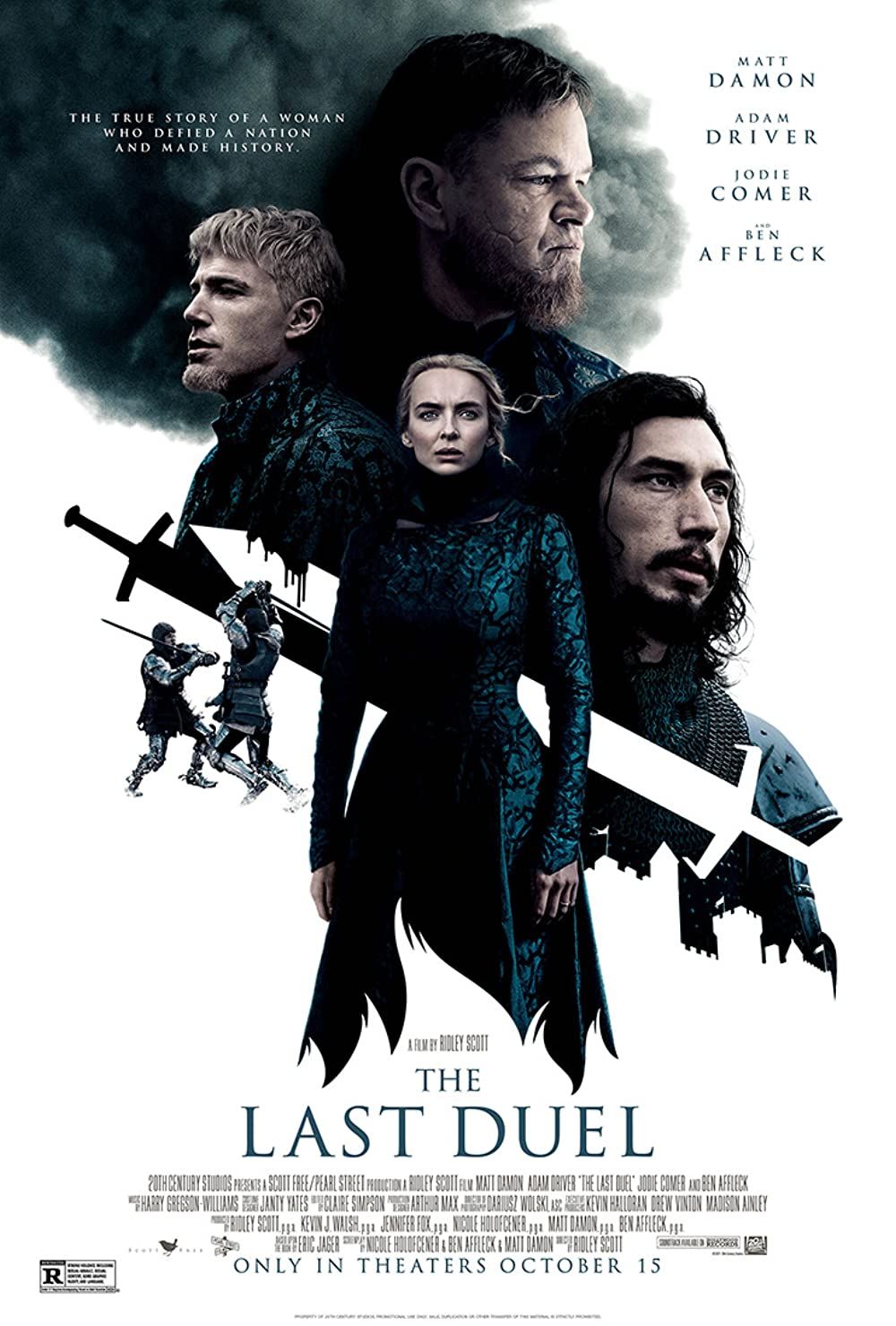Set in Medieval France, Ridley Scott’s The Last Duel, a period drama that has remnants of Gladiator in the brutish behavior of powerful men, might take audiences back in time, but its central story is rooted in the here and now. Period pieces have a way of distancing themselves from the present enough to dig deeper without being beholden to the knee-jerk reactions and the media circus that surrounds sexual assault accusations, and the film's message couldn't be more pointed in its mirroring of the present day. Co-written by Matt Damon, Ben Affleck, and Nicole Holofcener, their screenplay is based on Eric Jager’s book documenting the historical account of the story. The Last Duel is split into three chapters, each of which showcases the altering perspectives of its main characters. A tale of power and misogyny masquerading as honor, the film is engaging and occasionally funny, embracing its themes despite a narrative imbalance.
The Last Duel follows the evolution of Sir Jean de Carrouges (Damon) and Jacques Le Gris (Adam Driver) from friends to foes over the course of several years, with their feud and rising disdain for one another culminating in an intense and bloody duel after Carrouges’ wife, Marguerite de Carrouges (Jodie Comer) accuses Le Gris of raping her. The story begins in 1386 France before cycling backwards to where it all began. Carrouges and Le Gris were friends — the latter even godfather to Carrouges’ son — and comrades on the battlefield. While Carrouges is all about king, god, and country, Le Gris gains the favor of the salacious Pierre d'Alençon (Affleck), the king’s cousin. As the pair's friendship deteriorates, their jealousy and frustration comes to a head when Carrouges challenges Le Gris to the last legally sanctioned trial by combat.
While the film offers three distinct perspectives, with each of the events previously shown playing out somewhat differently and to varying degrees of effectiveness depending on whose side of the story is being told, The Last Duel doesn’t swim in ambiguity when it comes to Marguerite’s rape. The story stands firmly in her corner, even as she becomes subject to intense scrutiny, questioning, and betrayals. Religious men are suddenly interested in science when it comes to damning a woman, while simultaneously treating Le Gris with sympathy and forgiveness, with the film fastidiously examining the insidious patriarchal structures that are still very much at play today. There is a lurking sense of entitlement that colors every aspect of the film — from Carrouges’ indignation regarding a captaincy once promised to him to Le Gris getting what he wants through violent means and despite protestation.
The film goes so far as to show how even Carrouge’s mother Nicole (Harriet Walter) — who admits there is no fairness in life, “only the power of men” — acts against Marguerite in service of the patriarchy. It’s all rather disheartening, with an incisive commentary on the ways in which this very system, and its disregard for women, still exists today. To that end, Ridley’s film showcases the brutality that goes beyond the blood and violence of physical altercations. The duel itself is merely an extension of all that came before. In the court of public opinion, believing women is not a given, but an argument that must be won. The truth is treated with ambivalence, with the benefit of the doubt offered here to Le Gris. And although there are layers of depth and development, all of which highlight the system that attributes to these events, The Last Duel takes a firm stance in its message.
The buildup gives the title fight higher emotional stakes, turning it into a riveting spectacle rife with meaning. But the duel itself is less interesting than what happens before, with the script and the direction laying the groundwork in detail, allowing the audience to enter this world through the eyes of its characters, while also making sure not to excuse their behavior. The Last Duel might seem like a spectacle, teasing a gruesome duel to the death, but it's more of an intriguing character study. Jodie Comer is a standout, giving a deeply nuanced performance. She gets time to shine as the purveyor of truth in her chapter, which is the final one of the film, an example of the strength and fortitude it takes to tell it like it is despite the ugly and brutal backlash from the public.
But while Marguerite gets her own chapter and perspective, the story is far more occupied with her role as a victim than in delving deeper into what makes her character tick. Her role is rather limited to the confines of what happens to her later on (a rape that certainly did not need to be shown twice for the audience to get the point), seemingly less interested in how she feels about her life or the relationships she’s forged, be it out of duty or genuine friendship. Affleck, meanwhile, is clearly having a great time playing Pierre, embellishing in the ridiculousness of his character. He brings levity to the otherwise serious tone of the film. There is plenty of campiness to be found throughout, too, especially as the narrative shifts between characters, but Pierre remains a constant source of entertainment. Adam Driver and Damon (each with fluctuating accents) are good at portraying their flawed, ego-driven characters, each of whom becomes more annoying as the film goes on.
All that said, The Last Duel does go on for much longer than it should. Each of its three chapters reveals certain details that are different due to their rotating perspectives — Carrouges gets more impatient and embarrassing from Le Gris’ point of view, etc. — but there is very little that actually changes or adds to the overarching story. A few scenes belonging to the chapters of Carrouges and Le Gris could have been trimmed down, especially if that time could have been used to expand upon Marguerite’s story. Wrapped up in its drama, however, the film is less of an actioner and more of a multifaceted examination of men and their endless well of power and privilege, how it’s wielded, and the women it harms. The Last Duel is ultimately a timeless film that serves as a reminder that, despite its 14th century setting, some things haven’t really changed at all.
The Last Duel releases in theaters on Friday, October 15. The film is 152 minutes long and is rated R for strong violence including sexual assault, sexual content, some graphic nudity, and language.




